For Teachers, By Teachers
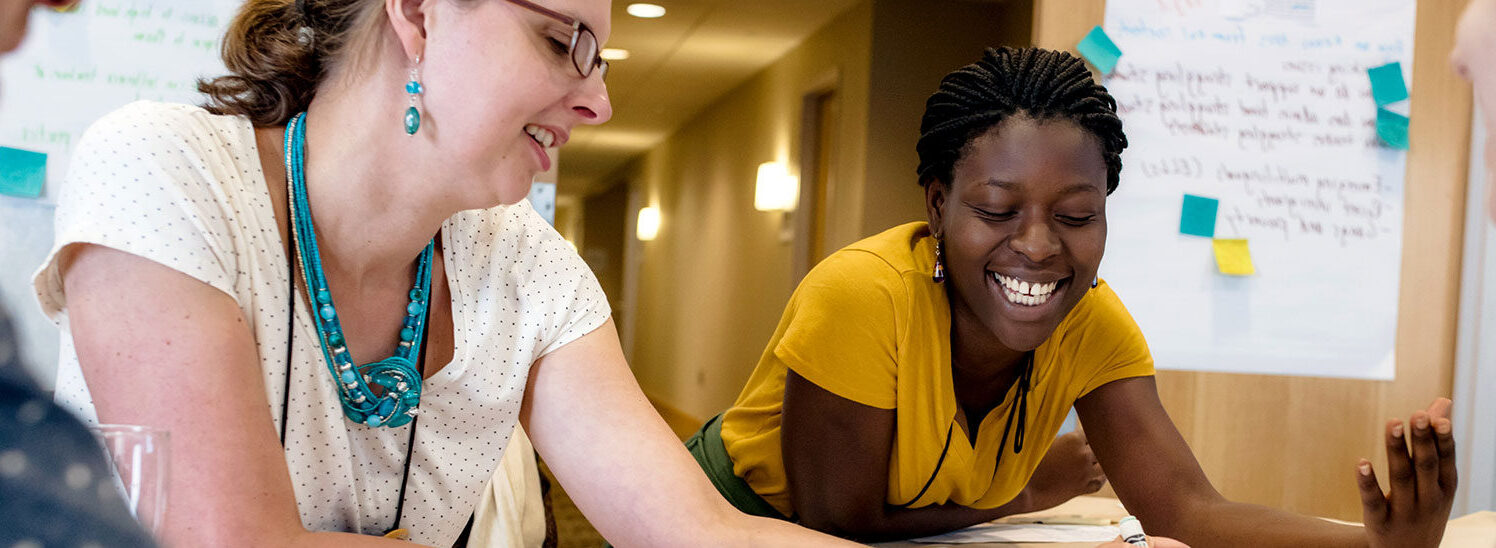
Professional Learning
Key Knowles Academy Features
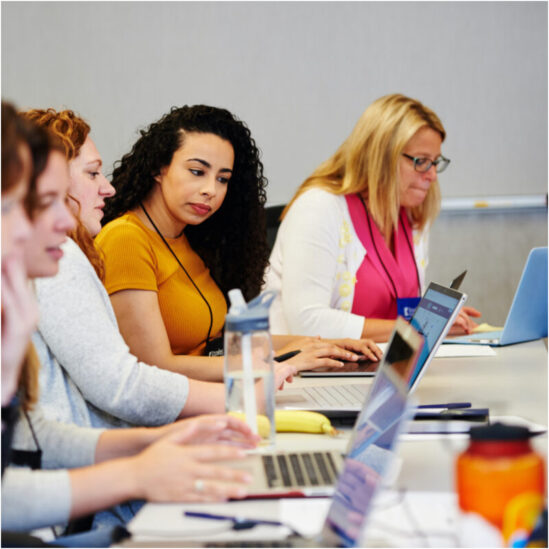
School & District Learning
We understand the ever-evolving landscape of education. Our professional learning services are designed to be flexible and responsive, ensuring they can be tailored to meet the needs of schools and districts. Teachers leave our professional learning energized, motivated and valued as professionals.
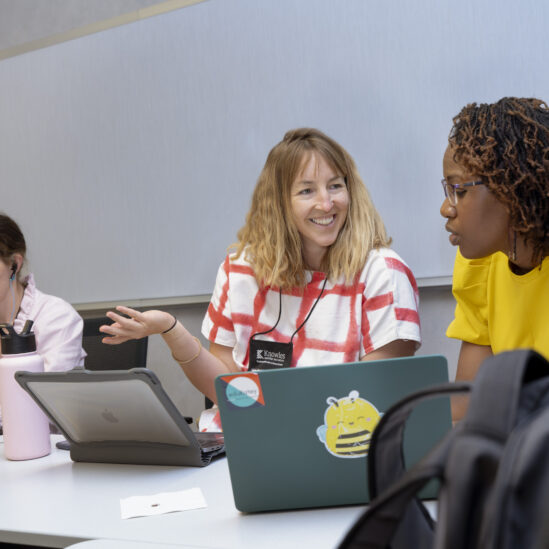
Coaching
Knowles Coaching pairs teachers with certified coaches from the Knowles Coaching Network for a full school year. These coaches are trained to address the teacher’s specific needs using three stances: cognitive, collaborative, and consulting.
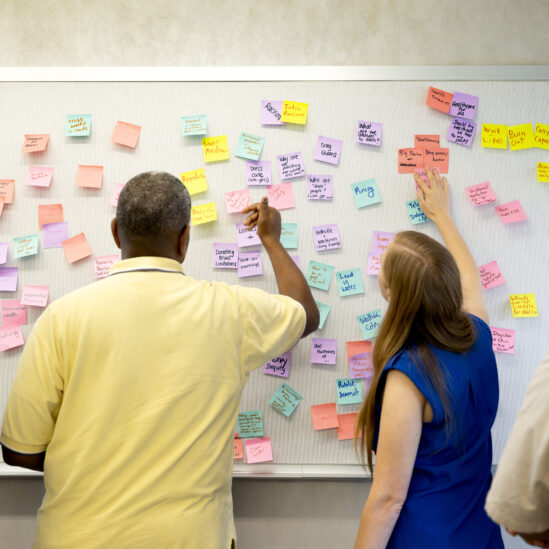
Courses & Workshops
We offer both in-person and online courses for all teachers. Our online courses include six-week options with the opportunity to earn graduate credit through SNHU, as well as 90-minute workshops. Additionally, we offer three-day in-person courses for more in-depth engagement and learning.
Upcoming Courses & Workshops
-
Online Workshop 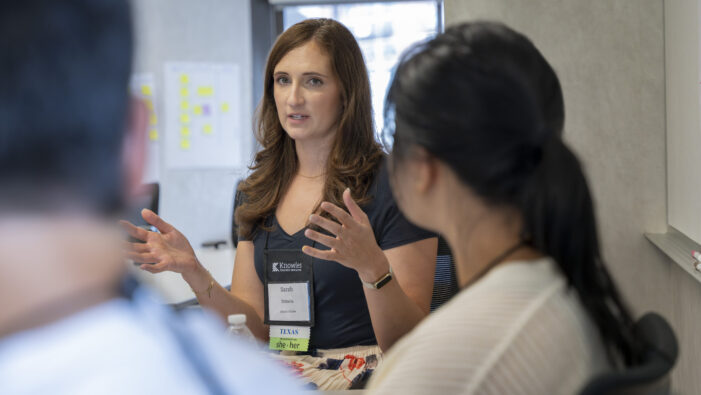
Actionable Norms for Effective Groupwork
7:30PM – 9:00PM ET Free How can students learn to integrate their content knowledge with effective communication skills to solve meaningful and complex problems in a collaborative setting? In this workshop, teachers will learn strategies and principles for establishing a classroom culture of effective and meaningful student collaboration through the clear and intentional setting of actionable norms—working persistently, communicating productively, and taking risks. Leave this workshop with strategies that leverage the use of the actionable norms to encourage more students to effectively participate in groupwork activities.
Learn More Register -
Online Course 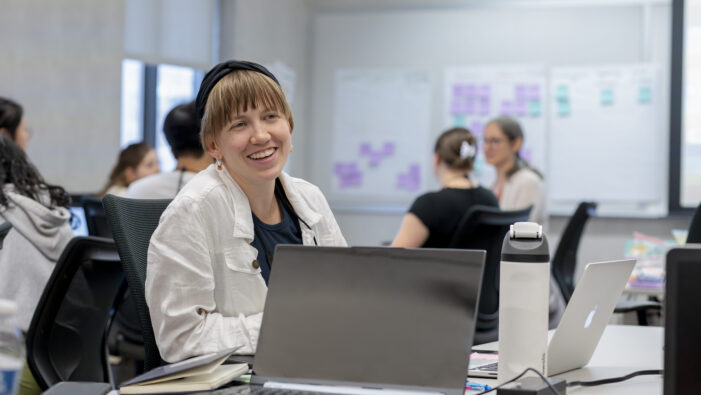
AI Essentials for Educators
7:00 PM-9:00 EST 25.00 Discover how AI can enhance your teaching practice. In this workshop, you’ll explore practical applications of AI tools that can support both classroom instruction and behind-the-scenes tasks like lesson planning. We’ll provide hands-on opportunities to engage with AI and consider how it can be adapted to your specific teaching context. Whether you’re just starting out or looking to deepen your AI literacy, you’ll leave equipped with tools and strategies to confidently incorporate AI into your teaching.
A $25 registration fee is required to secure your spot. As a token of our appreciation for your commitment to your students and advancing math and science education, attendees who complete at least 5 out of the 6 sessions and complete a brief feedback survey will receive a $50 gift card. Time is allotted at the end of the final session to complete the feedback survey.
Wednesdays, April 15 – May 20, 2026Learn More Register -
Online Workshop 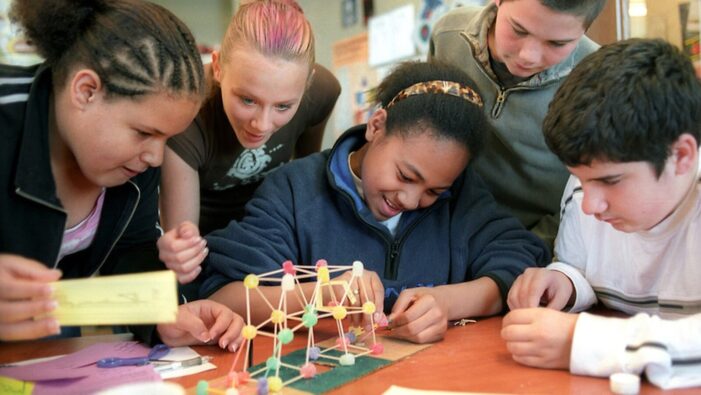
Engineering to Empower
7:30PM – 9:00PM ET Free How can we integrate engineering into math and science classes to help students develop a more meaningful understanding of real-world issues? We’ll use a Four-Level Empowered Engineering framework to explore how engineering integration in science and math offers students a range of opportunities for learning, engagement in community issues, and agency for solving problems in their world. Teachers will identify entry points in their curriculum to integrate engineering and social justice.
Learn More Register
Resources
Integrating Social Justice Issues in Science Classrooms
As the world faced COVID-19 and racial injustice, a science teacher sought ways to address racism in the classroom. Inspired by the connection between redlining and urban heat islands, they developed a physics unit on thermal energy tied to social justice. This led to creating resources and a course to empower teachers to integrate real-world issues into STEM education.
Learn More
The Power of Coaching
Typically, coaching meetings are conversational, with the Coach employing skills of deep listening, strategic paraphrasing, and asking questions to clarify, organize, and probe the Coachee’s thinking. Knowles Coaches effectively match their coaching stance (consulting, collaborative, and cognitive) to the needs of the Coachee so that the Coachee feels empowered to improve the educational experiences of their students and sustain their love for the profession.
Newton North High School, Massachusetts
Knowles conducted a three-day course, “Increase Participation: Strategies for Effective Groupwork,” for 20 high school science teachers. Following the course, instructors led 10 monthly virtual department meetings to support their implementation.